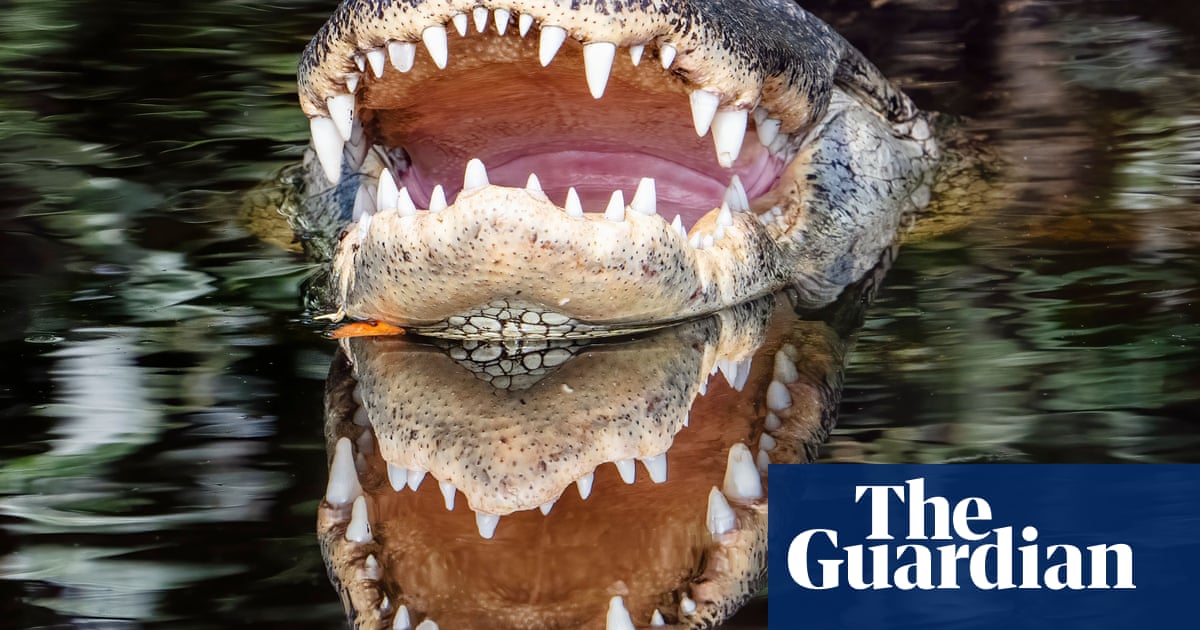An alligator killed aFloridawoman after tipping over a canoe she and her husband were paddling, in what investigators say appeared to be an accidental encounter.
The attack happened on Tuesday afternoon near the mouth of Tiger Creek into Lake Kissimmee, south of Orlando, theFloridafish and wildlife conservation commission (FWC) said. It is near the location of a March alligator attack in which a woman was bitten on the elbow while kayaking.
Investigators said at a news conference on Wednesday that the couple was canoeing in about 2.5ft (less than 1 meter) of water when they came upon a large alligator. The startled animal thrashed suddenly, tipping over the canoe and sending both people into the water.
“It sounds like the canoe drifted over, on top of the alligator. The alligator was startled,” said Roger Young, the FWC’s executive director.
Witnesses told investigators that the husband tried to fight off the animal but was unsuccessful. FWC officials identified the victim as 61-year-old Cynthia Diekema of Davenport, Florida. It was not clear if her husband was injured.
A trapper captured an alligator measuring more than 11ft (3.3 meters) long that is suspected of being the animal involved, but investigators caught another large alligator that also could have been responsible for the attack, officials said.
Since 1948, when officials began tracking alligator bites involving people in Florida, there have been 487 unprovoked bites through 2024, according to FWC data. Of those, 339 were major bites and 27 were fatal.
The most recent fatal alligator attack was in February 2023 when 85-year-oldGloria Serge was killedwhile walking her dog along a community pond in Fort Pierce, officials said. Earlier that year, a 23-year-old man lost his arm in an attack near a pond behind a bar in Port Charlotte.
Alligator encounters with humans are more common in the spring mating season, when they are most active, Young said. There are an estimated 1.3 million alligators in Florida.
“While alligator attacks resulting in fatalities are extremely rare, this tragedy serves as a somber reminder of the powerful wildlife that share our natural spaces,” Young said. “Be cautious of your surroundings. Know what wildlife is in the area.”
The alligator attack comes as FWC officials continue to investigate a rare fatal black bear attack on Monday that took the life of 89-year-old Robert Markel and his dog near his home in Collier county, in south-west Florida.Wildlifeofficers have killed three bears in the area since the attack.
The FWC plans public hearings on whether to hold a black bear hunt in parts of Florida later this year.
